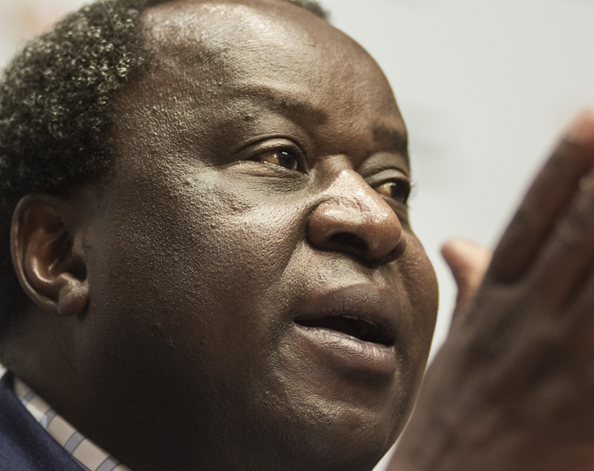Receive Focus insights straight to your inbox
South Africa’s government finances have deteriorated since 2009, on dissaving and overspending (as expenditure continues to exceed revenue), funded to a substantial degree by a rapid ramp-up in debt.

Economic growth is weak: down from 5.6% y/y in 2006, to only 0.6% y/y in 2016, with only around 1.0% y/y expected for this year, or less if load shedding is prominent. Fiscal stimulus has so far been unsuccessful in driving economic growth and government finances are severely constrained. The formal unemployment rate is close to 30%, versus 21.3% at the end of the last decade.
At current levels of government spending – which is high, even in real terms – households are paying higher taxes, while firms are having to save more and invest less.
The 2018 Medium Term Budget Policy Statement and 2019 Budget were not austerity budgets. Falling tax buoyancy ratios – a measure of how growth in tax revenue responds to growth in a country's economy – point to slower growth as tax rates have risen over the past decade. The 2019 Budget was seen as credit negative by Moody’s, with gross debt now forecast to peak above 60% of Gross Domestic Product (GDP) in 2023/24, versus a previous expectation of 59.6%. The fiscal deficit – the extent to which government spending exceeds its tax revenue – also widened to 4.5% of GDP for 2019/20, from 4.2% of GDP previously.
However, over the Medium-Term Expenditure Framework (MTEF), which runs from 2019/20 to 2021/22, the budget deficit returns to the MTBPS level of 4.0% of GDP. Government has avoided the immediate downgrade risk of taking on Eskom’s debt and expenditure is forecast to exceed the MTBPS projections only in one year.

Pouring money directly into Eskom in its current form is like pouring water into a sieve. I want to make it clear: the national government is not taking on Eskom’s debt. Eskom took on the debt. It must ultimately repay it.
Furthermore, vastly improved efficiency is planned at SARS. This should go some way towards addressing falling levels of tax assessments. The number of corporate tax assessments dropped from 817 597 in 2015 to 483 473 in 2018, and individual assessments dropped from 6 million in 2014 to 4.9 million in 2017. Not all of this can be attributed to weakening in economic growth.
But these mitigating factors may not be enough to stave off a credit rating downgrade. The rating agencies will also be assessing Eskom’s impact on SA. SA guarantees Eskom’s debt, which has increased from R59bn to R440bn over the past ten years and is currently rated below sub-investment grade by the three key rating agencies.
Plans are underway to restructure Eskom into three companies, namely, transmission, generation and control of the grid, with the former two potentially seeing partial privatisation. Government has previously said it will not extend further guarantees to Eskom, but the yields on standalone Eskom borrowing are high.
Eskom’s huge debt burden and the negative impact of load shedding on economic growth risks SA seeing an actual Moody’s credit rating downgrade, instead of merely a drop in its outlook to negative. Should this occur, the outflow from SA is estimated at US$8-10bn, resulting in a markedly weaker exchange rate, high inflation, and higher interest rates.
About the author

Annabel Bishop
Chief Economist of Investec Ltd
Annabel holds an MCom Cum Laude (Economics and econometrics) and has worked in the macroeconomic, risk, financial market and econometric fields, among others, for around 25 years. Working in the economic field at Investec, Annabel heads up a team, which focusses on the macroeconomic, financial market and global impact on the domestic environment. She authors a wide range of in-house and external articles published both abroad and in South Africa.
Subscribe to Investec's podcasts on market and economy moves

Listen to regular interviews with experts from across the Investec group. Our channel is accessible wherever you currently listen to your podcasts.

Listen to each podcast individually or subscribe to get new episodes as they become available.




